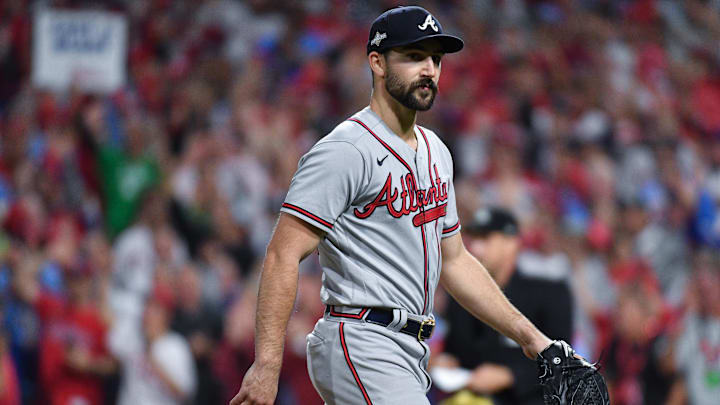The Atlanta Braves lineup was relentless during the regular season, leading baseball in a long list of individual and team statistical categories. Everyone expected them to emerge from a knock-down-drag-out slugfest against the Phillies and move on to the LCS, except they didn’t.
Excuses are many, and mistakes were made, but the Braves didn’t lose to the Phillies because the umpires were awful or the manager made a couple of bad bullpen decisions.
Don’t Blame The Umpires
Fans – myself included - tend to react as if umpires shouldn’t make mistakes; that’s a fallacy worthy of really good drugs. Home plate umpiring during the LDS didn’t hurt the Braves' chances of winning. Umpire scorecards say they weren’t.
- Game 0ne: Brian O’Nora incorrectly called six pitches – three balls were true strikes, and three true strikes were called balls. These calls slightly favored the Braves but didn’t significantly favor either team.
- Game two: Ben May incorrectly called 10 pitches – eight balls were called strikes, and two strikes were called balls. These calls slightly favored the Braves but didn’t significantly favor either team.
- Game Three: Mark Carlson incorrectly called 10 of 169 called pitches – Six balls were called strikes, and six strikes were called balls. These calls slightly favored the Braves but didn’t significantly favor either team.
- Game four: David Rackley incorrectly called five pitches – four balls were called strikes, and one strike was called a ball. These calls slightly favored the Braves but didn’t significantly favor either team.
Umpires as a group are very good at their job; their work didn’t affect the series' outcome.
What Happened?
After game one, Matt Gelb wrote a piece for The Athletic discussing the Phillies' bullpen use, pointing out that while the Braves slugged .512 on pitches up to 96 mph, that number dropped to .396 on pitches at or above 97 mph. Gelb didn’t break down the numbers further in his post but the Phillies undoubtedly did.
According to Statcast via Baseball Savant’s search function, at the top of the zone, the core of the Atlanta Braves lineup – Acuña Jr, Albies, Riley, Olson, Ozuna, and Rosario – batted .222/.228/.519. Removing Acuña from the mix drops the top-of-the-zone slash line to .171/.186/.390, so they mostly pounded the lower third of the zone by breaking balls off the plate.
Statcast also shows that keeping pitches in the middle to the outer third of the plate for that group lowers the slash line to .100/.097/.100 while dropping below the top third of the zone raises that slash line to .312/.309/.431.
The plan was clear: use their power arms early and stay at the top of the zone on the outer half until the Braves recognize and make adjustments.
